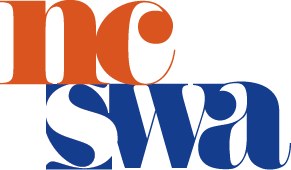Yes, you can get paid for public speaking as a science writer
by Jennifer Huber
Alaina Levine loves being a professional speaker and coach. As she moderated the virtual ScienceWriters2021 session “Professional (Paid) Speaking: Building a Sustainable Revenue Stream,” her energy radiated through the screen. Her panelists were also “in awe of her energy,” and one asked what she had for breakfast. “Three cups of coffee, four tacos and two cupcakes,” Levine replied. Is this the new breakfast of champions?
Levine’s session focused on how to leverage science writing expertise into paid speaking engagements. The panel included three multi-talented science journalists who are professional speakers.
After introductions, Levine polled the audience to ascertain their speaking expertise. For example, one question asked “What is the highest you have been paid for a speaking engagement?” The majority of the attendees admitted, “I can get PAID??”
The panelists then offered insights and practical tips to their inexperienced audience. First, they explained how they choose their speaking topics and the kinds of engagements they do. As one might expect, their programs are largely guided by their science writing beats. And their engagements are various, including TedX talks, keynotes, panels and trainings.
Freelancer journalist Kavin Senapathy, for example, speaks to audiences ranging from tens to thousands about science, health, food and parenting. “I bring some of my reporting into my talks, and I focus on deeply context-driven, justice-driven and evidence-driven takes on my topics,” she said.
Maryn McKenna, a newly hired senior writer at WIRED, also speaks on her specialties—public health, global health and food policy—developed as a freelance journalist and author. “I’ve written three books. And each of those books was about something different that launched me into speaking about that topic,” explained McKenna.
This was seconded by Christie Aschwanden, a science journalist, podcaster and author. Her book Good to Go came out before the pandemic, so she spent most of 2019 promoting it. She realized she could turn her book tour into a paid speaking tour.
Prompted by a question in the Zoom chat, the panelists later cautioned the audience, especially journalists, to consider conflicts of interest when selecting speaking programs and engagements.
“I wouldn’t take money from a drug company because I write about drug development and antibiotic resistance,” said McKenna. She’s also careful about who she’s photographed with on a panel to avoid malicious actors, and she researches who is funding a potential paid event.
When developing programs, the panelists also identify their value propositions: What problems will they solve for their paying clients and their audiences?
For example, Levine teaches training webinars for professional organizations, which help her attendees advance their careers. But she also helps her paying clients, the organizations themselves. “I say to my client, it is going to help enhance your brand as career partners in this community. It’s going to bolster your membership because more people will see the value of this membership. … And it will even help bring in more sponsorship.”
Although the panelists varied in their marketing strategies, they all emphasized a need to tailor their value propositions for potential clients. For instance, like me, you may have heard of Aschwanden’s workshops on the business of freelancing. What makes them different from other freelancing workshops? “It’s not just me talking and conveying information,” she said. “The real value comes from the communities that I’m building.” In fact, she recently discovered that a group from one workshop has been getting together once a week for years.
Another thing the panelists agreed on was the main takeaway: Your time and domain knowledge is worth something when it comes to speaking, just like it is for writing. They said that it’s important to understand the minimum amount you’ll accept. And it’s important to clearly state that speaking is part of your business.
“Don’t apologize,” McKenna emphasized. “You are a professional. This is how you make your living.”
So, what should you do if a nonprofit or university says it doesn’t have a speaker budget? Unless you want to speak for free, they recommended pushing back. Levine responds by saying, “If your budget issues change, please let me know.” Or if she’s feeling less polite, “Don’t your staff members earn salaries?”
Senapathy is equally blunt. She even asks potential clients, “How much are the white men who are speaking getting paid?” and then asks for the same.
And just how much do these professional speakers charge? That was my burning question, because I’ve been teaching a lot of virtual workshops throughout the pandemic. But the SciWri attendees were asked not to disclose these dollar figures, so you’ll have to watch the recording on Whova to find out.
More information is available at the following links:
